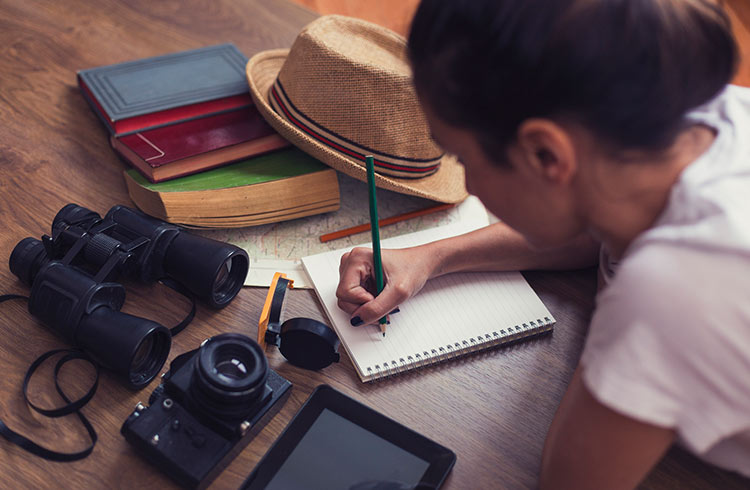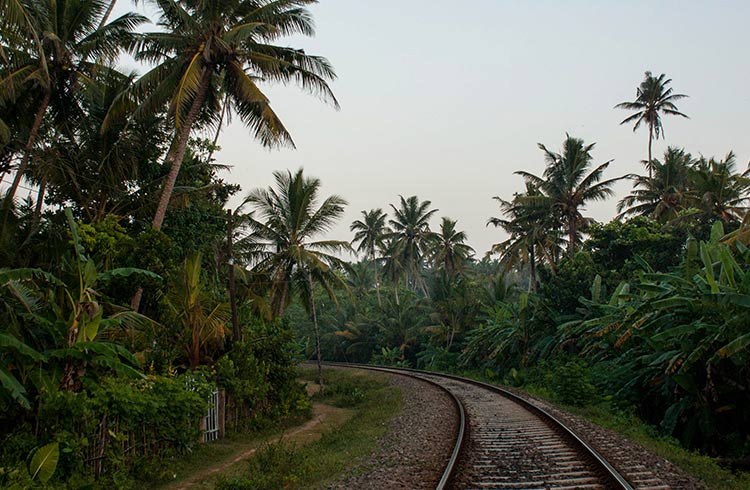Even with the best intentions, there never seems to be enough time before you fly to get everything done. Sound familiar? Check out our ultimate checklist to help make sure you have everything you need for a year abroad.
 Photo © iStock/miodrag ignjatovic
Photo © iStock/miodrag ignjatovic
- Research Your Destination
- Organize Your Paperwork
- Check Your Personal Health & Safety
- Get Insured
- Get Your Finances Sorted
- Stay Connected
- Finding the Right Luggage
- Do a Practice Run
1. Know Your Destination
Do your research on each location at least a month or two before you go. First, understand what visa you need and how soon you must obtain it, as well as what other documents you may need to show. Some places require proof that you will leave the country upon your visa expiration date.
Before plotting out your must-sees and must-eats, read up on the essentials.
- Know how public transportation runs.
- Find out how and where to exchange money.
- Read up on seasonal weather patterns.
- Investigate food and water safety.
The list goes on – but, these are ultimately the things that will make or break your trip.
Beyond relying on traditional travel guides and resources, join online groups for travelers and expats. For me, Facebook groups have proven invaluable for making connections, and staying informed about vital news and events happening in specific locations.
2. Organize Your Paperwork
Triple-check expiration dates on your passports and visas. Note the address and phone number for each of your accommodations (you'll often need this at customs), as well as emergency contact info, including your country's nearest embassy or consulate.
I recommend emailing yourself and/or a trusted friend or family member copies of your essential documents, including your passport, visa, and travel insurance.
You can also use a protected cloud service, just be sure to encrypt these files with a password.
3. Check Your Personal Health & Safety
Check with a travel doctor at least one to two months before your trip, to obtain all necessary vaccinations and medications.
If you're on prescription medications, check with your doctor to see how those prescriptions can be refilled on the road if necessary. It might also be worth checking that you won’t have any issues at foreign customs with these medications. Sometimes you’ll require a certificate to prove that they are prescribed for you.
Put together a small, packable first-aid kit. The necessities for this kit will vary by your location. A few extras I always bring along are non-refrigerated probiotics for immune and digestive support, and some high-quality unrefined sea salt – which can be used to make an excellent electrolyte solution, alongside a sugar source (like honey), and citrus juice.
4. Get Insured
Buying travel insurance is one of the most important ways to prepare for your trip. Make sure you read through the policy wording to see what’s covered and what’s not so there aren’t any surprises.
The key benefits to look for are overseas medical expenses, cancellation, and cover for your tech and bags. Match up your trip with the benefit limits so you can travel confidently.
It’s a good idea to buy travel insurance as soon as you start booking your trip, so you can protect yourself against unforeseen situations that the policy covers.
5. Prepare Your Money & Banking
Notify your bank and credit card companies of your travel plans, and note their emergency contact info in case your card is lost or compromised.
Get a card without ATM or international fees – for US residents, Charles Schwab and Capital One offer great options.
Sort out your bills, and cancel or suspend accounts that you won't be using – like internet, cable, phone, and subscription services.
6. Stay Connected
Organize your electronics and all accompanying cords in secure compartments that are easily accessible to you, but not to the potential pickpocket. There are various locks you can get to attach to any style of bag. Depending on your level of adventure, it may be necessary to get waterproof cases for laptops, handheld devices, and camera equipment.
Don't forget adaptors and chargers, and always have a backup. I have two different universal adaptors – inevitably one will work better than the other on any given outlet.
Make sure your smartphone is unlocked before getting a SIM card in your new destination. For some human connection, set up an account with Skype or WhatsApp to stay in touch with your loved ones.
7. Sort Out Your Luggage
Consider every aspect of your travel, and how you'll feel most secure and comfortable lugging your stuff around. Backpacks are typically better for mobility, while a suitcase allows for tidier organization.
I made the mistake of trying to be a backpacker, when I realized a suitcase was far better for my needs. Everyone is different – so do your research to find the right size and specs for you and your adventure!
8. Do a Practice Run
Try living out of your luggage for one week, and see what you can and can't live without. You'll likely realize your survival is not dependent on that extra pair of shorts. Minimizing not only takes a load off your shoulders, but off your mind as well.
Have we missed anything? Share you pre-travel routine with us in the comments below!
Related articles
Simple and flexible travel insurance
You can buy at home or while traveling, and claim online from anywhere in the world. With 150+ adventure activities covered and 24/7 emergency assistance.
Get a quote

No Comments